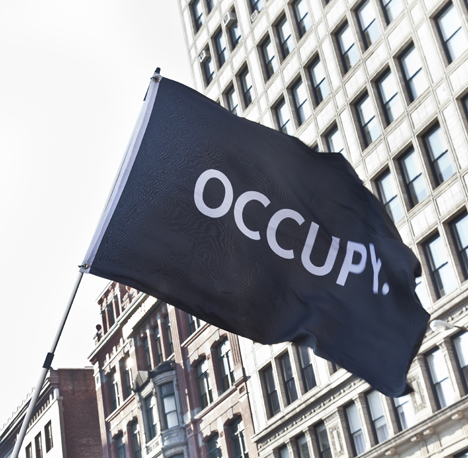
The global politics of protest
The new wave of revolutionary politics, from the Arab Spring to the Turkish Summer, is an insurgence against representative democracy that offer no alternatives, writes Ivan Krastev in a new book. Is protest really a better instrument than elections for keeping elites accountable?
In the five short years between Occupy Wall Street and Vladimir Putin’s “Occupy Crimea,” we witnessed an explosion of protests all around the world – the Arab Spring, Russian Winter, Turkish Summer, and the dismembering of Ukraine all were part of the protest moment. Each of these demonstrations – and many less monumental ones – was angry in its own way, but the protests are also a worldwide phenomenon.
Do they signal a radical change in the way politics will be practiced? Or are they simply a spectacular but ultimately insignificant eruption of public anger? Is it the technology, the economics, the mass psychology or just the zeitgeist that’s caused this global explosion of revolt? Do the protests prove the technologically amplified power of citizens? Or, alternatively, do they mark the decline of the political influence of the middle class and its growing discontent with democracy? Will it be the empowering energy of the protests or the conservative backlash against them that will shape the future of democratic politics?

Occupy Wall Street movement flag waved on Union Square in Manhattan in New York on 24 July 24 2012. Photo: Lev Radin. Source: Shutterstock
What strikes any observer of the new wave of revolutionary politics is that it is a revolution without an ideology or a project. Protesting itself seems to be the strategic goal of many of the protests. Failing to offer political alternatives, they are an explosion of moral indignation. In most of the protests, citizens on the street treat politics not so much as a set of issues but as a public performance or a way of being in the world. Many protesters are openly anti-institutional and mistrustful toward both the market and the state. They preach participation without representation. The protest movements bypass established political parties, distrust the mainstream media, refuse to recognize any specific leadership, and reject all formal organizations, relying instead on the Internet and local assemblies for collective debate and decision making.
In a way the new protest movements are inspired by mistrust in the elites, empowered by mistrust in leadership, constrained by mistrust of organizations, and defeated by the protesters’ inability to trust even each other: “This is an obvious but unspoken cultural difference between modern youth protest movements and those of the past. […] Anybody who sounds like a career politician, anybody who attempts to use rhetoric, or espouses an ideology, is greeted with visceral distaste.”1
Mistrusting institutions as a rule, the protesters are plainly uninterested in taking power. The government is simply “them,” regardless of who is in charge. The protesters combine a genuine longing for community with a relentless individualism. They describe their own political activism almost in religious terms, stressing how the experience of acting out on the street has inspired a revolution of the soul and a regime change of the mind. Perhaps for the first time since 1848 – the last of the pre-Marxist revolutions – the revolt is not against the government but against being governed. It is the spirit of libertarianism that brings together Egypt’s anti-authoritarian uprising and Occupy Wall Street’s anti-capitalist insurrection.
For the protesters, it is no longer important who wins elections or who runs the government, not simply because they do not want to be the government, but also because any time people perceive that their interests are endangered, they plan on returning to the streets. The “silent man” in Taksim Square, Istanbul, who stood without moving or speaking for eight hours, is a symbol of the new age of protests: He stands there to make sure that things will not stay as they are. His message to those in power is that he will never go home.
While it is popular for Europeans to compare the current global protest wave with the revolutions of 1848, today’s protests are the negation of the political agenda of 1848. Those revolutions fought for universal suffrage and political representation. They marked the rise of the citizen-voter. The current protests are a revolt against representative democracy. They mark the disillusionment of the citizen-voter. The current protests function as an alternative to elections, testifying that the people are furious; the angry citizen heads to the streets not with the hope of putting a better government in power but merely to establish the borders that no government should cross.
But is a protest really a better instrument than elections for keeping elites accountable? Can we be confident that people will amass on the streets in large numbers whenever the public interest is violated? Could it not be that the next time the government crosses the line, there will be too few protesters and the effort will fail? How can we be sure that elites will not capture future protests in the same way that they have captured elections? Is the strategy of permanent protest more promising than the once popular dream of permanent revolution?
Despite their myriad demonstrations of civic courage, creativity, and political idealism, the protests are not the solution to the politics of unconditional demands. They are a form of adjustment to it. In most cases, they have not introduced new political actors or restored trust in politicians or public institutions. On the contrary, the protests have turned a mistrust of institutional norms into a norm of its own. The protests are likewise an insurrection against the institutions of representative democracy but without offering any alternatives within the democratic system or openness to non-democratic alternatives. The wave of protests is leaderless, finally, not because social media have made leaderless revolutions possible, but because in our libertarian age the ambition to challenge all forms of political representation have made unwelcome political leaders of any stripe. Google’s Eric Schmidt thus may well be right when he predicts that “the future will be full of revolutionary movements” but short of “revolutionary outcomes.”2
Democracy has been disrupted. But to what end? So far, we appear to have no idea – beyond disruption itself.
This is an edited excerpt from Ivan Krastev’s book Democracy Disrupted. The Global Politics of Protest.
Paul Mason, Why It's Kicking Off Everywhere: The New Global Revolutions, London: Verso, 2012, p. 45.
Eric Schmidt and Jared Cohen, The New Digital Age: Reshaping the Future of People, Nations and Business, New York: Knopf, 2013.
Published 18 August 2014
Original in English
First published by Democracy Disrupted. The Global Politics of Protest (Penn Press 2014) and IWMpost 113 (2014)
Contributed by Transit © Ivan Krastev / IWMpost / Eurozine
PDF/PRINTPublished in
In focal points
- The global politics of protest
- Dynamics of inequality
- Between hegemony and distrust
- The unpredictability of politics in the age of social media
- After democratic transition
- Two-and-a-half theories
- Living in the matrix
- When the feet become the head
- The future council
- Is China more democratic than Russia?
Newsletter
Subscribe to know what’s worth thinking about.
Related Articles


The imprisoned Belarusian opposition politician Maria Kalesnikava has been in a critical condition since the end of November. In October she was awarded an honorary professorship at the University of Salzburg. The philosopher Olga Shparaga, a fellow member of the exiled Coordination Council, pays tribute to a feminist legend.





